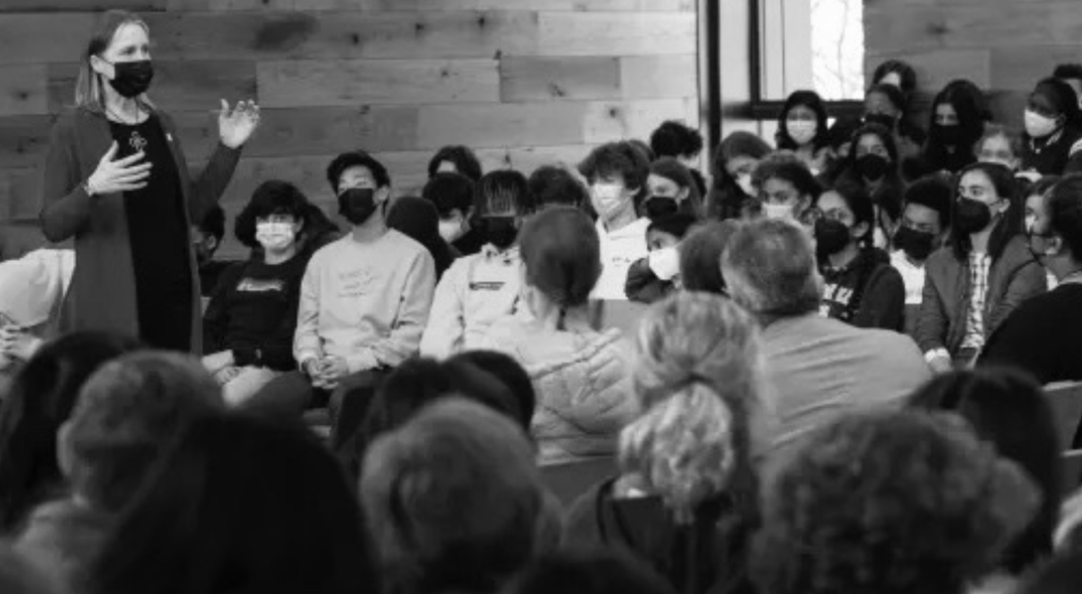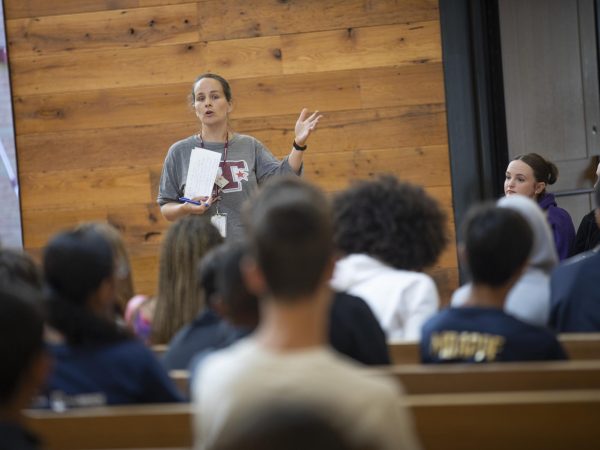Recent Survey Marks Progress for Mental Health Dialogue
Upper School parents were recently asked to complete a mental health survey created by the University of Maryland. This survey was designed to better the understanding of the general mental health of the Sidwell community, both socially and academically. The questionnaire was accompanied by a survey completed by students during advisory, which was also created by the University of Maryland. Although mental health dialogue must be consistently sustained, this survey is a step in the right direction for communication around students’ mental health.
One source of the survey’s efficacy was its anonymity, which made parents more comfortable answering questions. A solid portion of the questionnaire posed personal questions to the parents in order to, for example, understand their ability and comfort level with talking to teachers and staff. Understanding that this survey was anonymous, many parents likely answered questions about both their child and themselves more honestly, providing more accurate results than surveys that collect the identity of the participant. Honest responses will offer valuable feedback about how the academic and social atmosphere at Sidwell affects students’ mental health.
Many of the questions on the survey concerned everyday actions and student interactions, such as, “On average, how many hours of sleep does your child get per night on the weekends” and “How many hours a week does your child participate in SFS extra-curricular activities?” The results will help generate estimates and rough averages of how balanced Sidwell students’ lives are and whether the school should make any changes to promote a more well-rounded student life. However, these numbers depend on grade, extent of extra-curricular involvement and other factors that vary on a personal level, so they are not a perfect representation of every student experience. Still, these responses can help the administration gain a general understanding of the way students’ time is distributed.
Other questions covered the more personal details of students’ lives. For instance, one of the many questions asked parents, “Please indicate the extent to which this statement is true of your child: Picked on or bullied by other children.” In some cases, parents would not know whether their child gets “picked on” or “bullied.” Answers to these questions were likely less accurate and insightful, as they are sometimes not communicated between children and parents.
Despite potential shortcomings in parents’ knowledge of their children’s mental state and factors that are more unique to each student, the responses to this survey are useful to see the general mental health condition of the students here at Sidwell. From that, the administration can draw conclusions about how the Sidwell experience affects students’ mental health and consider changes to improve it.
Your donation will support the student journalists of Sidwell Friends School. Your contribution will allow us to purchase equipment and cover our annual website hosting costs.























































